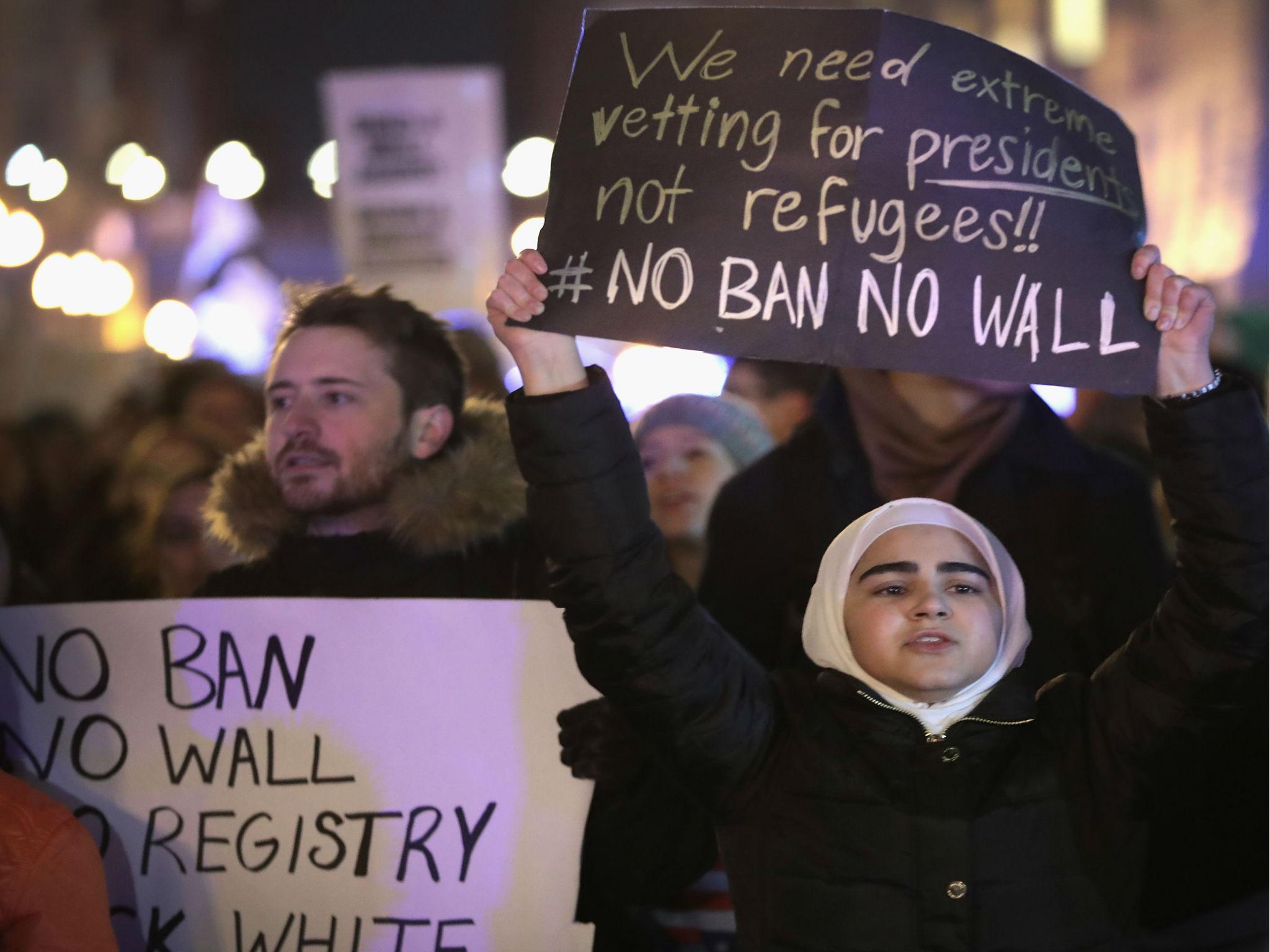Block on Donald Trump's travel ban upheld by federal appeals court
The court wrote that the travel ban 'drips of religious intolerance, animus, and discrimination'

Your support helps us to tell the story
From reproductive rights to climate change to Big Tech, The Independent is on the ground when the story is developing. Whether it's investigating the financials of Elon Musk's pro-Trump PAC or producing our latest documentary, 'The A Word', which shines a light on the American women fighting for reproductive rights, we know how important it is to parse out the facts from the messaging.
At such a critical moment in US history, we need reporters on the ground. Your donation allows us to keep sending journalists to speak to both sides of the story.
The Independent is trusted by Americans across the entire political spectrum. And unlike many other quality news outlets, we choose not to lock Americans out of our reporting and analysis with paywalls. We believe quality journalism should be available to everyone, paid for by those who can afford it.
Your support makes all the difference.One of two US Circuit Courts of Appeals considering whether or not to extend a nationwide stay on President Donald Trump's contentious travel ban has ruled to largely affirm the injunction.
The 4th Circuit Court of Appeals ruled to keep the block on Mr Trump's ban on travel from seven predominantly Muslim countries saying that, while the President has large constitutional authority to regulate who can come into the country, his power is not resolute. The chief judge of the court, Roger Gregory, wrote in the majority decision that Mr Trump's executive order spoke in "vague words of national security", but that the real world context of the order "drips of religious intolerance, animus, and discrimination".
"Congress granted the President broad power to deny entry to aliens, but that power is not absolute", Mr Gregory wrote. "It cannot go unchecked when, as here, the President wields it through an executive edict that stands to cause irreparable harm to individuals across this nation".
The 4th Circuit's decision effectively stops the Trump administration from implementing the travel ban unless the Supreme Court intervenes. Mr Gregory wrote that statements from Mr Trump and his associated, both during his presidency and his candidacy, showed that religious discrimination were a key motivator in the decision to attempt to implement travel bans. Mr Trump, although he later began to call for a ban on "territories" compromised by terrorism, repeatedly mentioned the Muslim faith when discussing his ban, and had originally related it to Muslims when he announced it. Once in the White House, officials disputed the characterisation of the ban as a "Muslim ban."
Responding to the 4th Circuit Court ruling, the White House said: "These clearly are very dangerous times and we need every available tool at our disposal to prevent terrorists from entering the United States and committing acts of bloodshed and violence. As dissenting Judge Dennis Shedd said, "'the real losers in this case are the millions of individual Americans whose security is threatened on a daily basis by those who seek to do us harm.' We are confident the President's executive order to protect the country is fully lawful and ultimately will be upheld by the Judiciary."
After the 4th Circuit Court ruling, US Attorney General Jeff Sessions confirmed that the Trump administration will seek a Supreme Court review.
The court took an unusual step when considering the travel ban. For most cases, a three judge panel will listen to arguments and then make a decision. On somewhat rare occasions, the three judge panel will kick the case to the full 4th Circuit Court. In this instance, however, the full court listened to arguments and skipped the three judge panel step completely. That hasn't been done since 1998 when the court considered a challenge to a law that would require minors to let their parents know before they could receive an abortion.
It wasn't at all clear that the court would rule against the Trump administration on the order, as it has a reputation as the most conservative circuit court in the nation. Judges in the Virginia-based court were generally known to side with the government if administrations could present a convincing case that national security were at risk.
The 4th Circuit was one of two federal courts to hold up the travel ban, joining the 9th Circuit Court of Appeals, which has not come to a decision on the matter, but is generally viewed as more of a liberal bench. Mr Trump, apparently frustrated with the 9th Circuit repeatedly blocking his administration's more controversial executive orders, has said that he would consider breaking up the 9th Circuit Court if it continues to block his attempts to govern (though it is not at all clear that he has the ability to do that).
Join our commenting forum
Join thought-provoking conversations, follow other Independent readers and see their replies
Comments